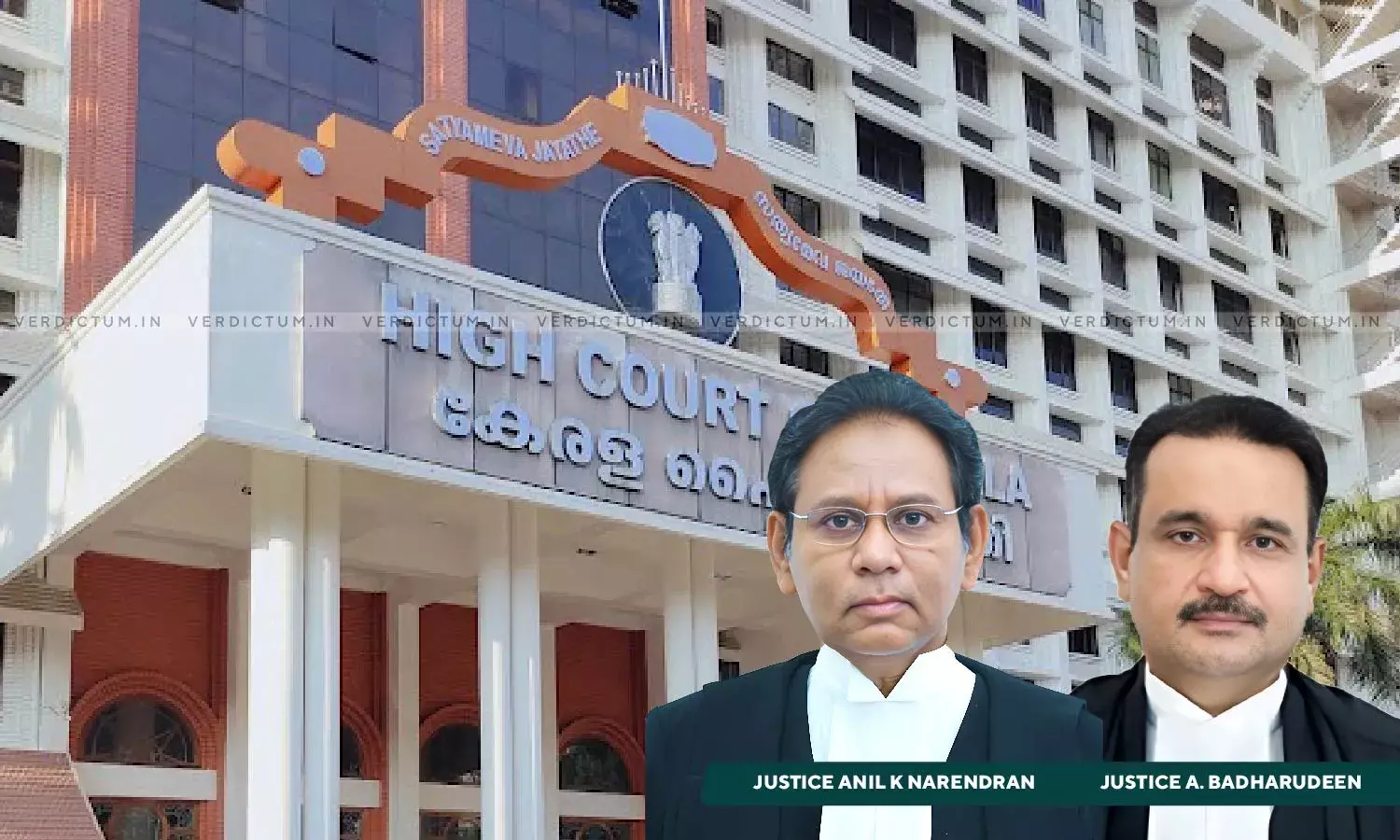Encumbrance Certificate Issued By Sub-Registrar Should Be Considered As Correct Unless Established That It Was Outcome Of ‘Fraud’: Kerala HC
Finding that the ‘fraud’ alleged by appellants (legal representatives) on the ground that a false encumbrance certificate, without recording the other attachments, was produced before the court by the decree holders (respondents) in collusion with the judgment debtors and conducted the sale, is not at all established in the instant case, the Kerala High Court ruled that a petition under Order XXI Rule 90 of the CPC alleging material irregularity or fraud in publishing and conducting sale shall be filed within 60 days from the date of sale, as provided under Article 127 of the Limitation Act.
The Division Bench of Justice Anil K. Narendran and Justice A. Badharudeen observed that “When a person applies for encumbrance certificate, the same will be issued by the Sub Registrar and therefore, primarily the entries therein should be considered as correct unless it is established that the same was the outcome of `fraud'. A party alleging `fraud' of such a nature shall not only plead the same but also prove the same”.
Advocate M.R Rajesh appeared for the Appellant, whereas Advocate P. Aniyan appeared for the Respondent.
The brief facts of the case were that the appellants are the legal representatives of one Gopinathan, S/o Padmanabhan, who originally filed Execution Appeal (EA) as a third party seeking the relief to set aside the sale conducted in Execution Petition (EP). The respondents are the decree holder/auction purchaser and the judgment debtors in the said EP. During pendency of this appeal, the first respondent died and his legal heirs got impleaded. One Sundareshan (first respondent) filed a suit and obtained decree to realize an amount of Rs.1,44,450/- with 6% interest from second to fourth respondents. The property sold in auction in EP was attached and a charge decree was passed. The predecessor of the appellants i.e., Gopinathan filed suit and obtained a decree for realization of an amount of Rs.1,45,000/-. The proceedings in EP culminated in the sale of the property where both parties obtained charge decrees. Gopinathan however filed EA to set aside the sale, alleging fraud, and contended that the first respondent obtained false encumbrance certificate without showing three more attachments subsisting at the time of sale and produced the same before the court to substantiate that the property is free from encumbrance, except the attachment effected in O.S.No.82/2003 as well as a mortgage in favour of a co-operative bank. The further contention was that the decree holder in O.S.No.82/2003 and the judgment debtors therein colluded together and thereby sold the property in court auction and the decree holder himself auctioned the property with permission of the court for a lesser price.
After considering the submission, the Bench held that a person, who could claim rateable distribution of assets of the judgment debtor/s, has competence to challenge the sale by invoking Order XXI Rule 90 of the CPC, though he is not a party to the Suit.
The Bench further held that Order XXI Rule 90 of the CPC very well used the word ‘fraud’ as second reason to set aside the sale by invoking the said provision, and indubitably, Order XXI Rule 90 deals with pre-sale material irregularity and fraud in publishing and conducting sale, as grounds to set aside sale.
“It is pertinent to note that the legislature in its wisdom after incorporating 2 grounds, viz., (i) material irregularity and (ii) fraud in publishing and conducting sale, as reasons for setting aside the sale at the instance of the category of people mentioned in Order XXI Rule 90, incorporated Article 127 in the schedule of the Limitation Act, prescribing sixty days from the date of sale as the period of limitation”, added the Bench.
The Bench elaborated that a court sale can be challenged by invoking Order XXI Rule 90 as well as under Section 47 of the CPC on the ground of irregularities/illegalities and fraud.
“However, the distinction between Order XXI Rule 90 and Section 47 is vivid and separable. That is to say, pre-sale illegalities, including fraud committed in the execution proceedings, are amenable to the remedy under Section 47 (not covered by Order XXI Rule 90) and post-sale illegalities or irregularities and fraud in publishing or conducting the sale, causing substantial injury to the judgment debtor, are covered under Order XXI Rule 90 of the CPC”, added the Bench.
The High Court explained that when the right of action is concealed by `fraud' used in Section 17, the period of limitation would start to run from the date of its knowledge. Fraud affecting limitation to be forecasted only where it prevented a person from knowing of his right or the title on which the right was grounded in.
Therefore, the High Court concluded that apart from Order XXI Rule 90 of the CPC, Section 47 of the CPC can also be invoked to set aside a sale either on the ground that it is void or that it is fatal on ground of illegality not covered by Order XXI Rule 90 of the CPC and the period of limitation for filing such an application is three years from the date when the right to apply accrues.
Cause Title: Nirmala and Ors. v. Sundaresan and Ors.
Click here to read/download the Judgment












